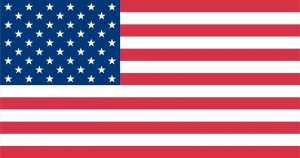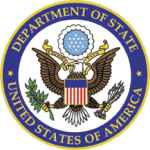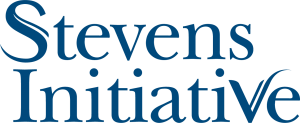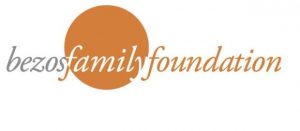-
What We Do
- WHERE WE WORK
-
About Us
 Welcome Message from Carol Jenkins
Welcome Message from Carol JenkinsFor more than 90 years, World Learning has equipped individuals and institutions to address the world’s most pressing problems. We believe that, working together with our partners, we can change this world for the better.
On my travels, I’ve had the opportunity to meet with many of those who have joined us in this mission. In Baghdad, we’ve trained more than 2,300 Iraqi youth who are already giving back at home. In London, our partners in the TAAP Initiative strongly believe that we are all responsible to practice inclusion. And in Vermont, our Experiment in International Living and School for International Training participants prove every day that they have the tools and the determination to change the world.
Please join us in our pursuit of a more peaceful and just world.
- Get Involved
Media Center > Press Room > Press Release
World Learning Receives Grant from the Stevens Initiative to Connect Students in the U.S., Middle East, and North Africa through Virtual Exchange
Publication Date: April 24, 2019
Publication Location: WASHINGTON
Contact: Kathryn Schoenberger | [email protected]
Grantees will create opportunities for U.S. and international students to build global competencies and career readiness skills through virtual exchange.
Today, the Stevens Initiative announced funding for The Experiment Digital and the NextGen Coders Network implemented by World Learning. They are two of six programs selected through an international competition to fund virtual exchange programs in the United States and the Middle East and North Africa (MENA).
World Learning is part of the third round of Stevens Initiative grantees. These exchanges will enable thousands of young people to gain the skills that they need to succeed in today’s economy and society, and to establish new cross-cultural connections.
Under the Stevens Initiative, The Experiment Digital, implemented by World Learning, is a two-month summer virtual exchange program that helps high school aged youth become more civically engaged by empowering them to plan and execute a community service project. Through interactive modules on leadership, community issues, and digital citizenship, participants will gain 21st century global competency skills. Through small group dialogue with participants from different countries, participants will develop mutual understanding and learn how to communicate across cultures and regions.
Under the Stevens Initiative, the NextGen Coders Network, implemented by World Learning, will create a virtual exchange opportunity for university students and young professionals from Iraq, Palestinian Territories, and the United States of America. These exchanges will take place through “hackathons” involving collaboration to solve grand challenges facing their communities using coding-oriented solutions. World Learning will implement the program in partnership with organizations in the U.S. and abroad.
“World Learning is thrilled to partner with the Stevens Initiative on these innovative virtual exchange programs that connect and empower young people across the world,” said Carol Jenkins, CEO of World Learning. “Building on our decades of experience in international exchange – and leveraging our robust digital platform and expertise in STEM education – we look forward to creating even more opportunities for young people to make a difference at home and globally.”
“I am very pleased with the grants that we are awarding for the next round of Stevens Initiative funded virtual exchange programs,” said Marie Royce, Assistant Secretary of State for Educational and Cultural Affairs, U.S. Department of State. “As bandwidths increase and platforms get more sophisticated, virtual exchanges open opportunities for international exposure and connection to hundreds of thousands – and potentially millions – of people. Virtual exchanges like those funded by the Stevens Initiative also facilitate cross-cultural experiences and build career readiness skills. I look forward to a great expansion of this innovative program over the next year and continuing to honor this living legacy to Ambassador J. Christopher Stevens.”
Through the work of these six new programs, the Stevens Initiative will expand its reach to nearly 40,000 students in 15 MENA countries and the Palestinian Territories, and in 44 U.S. states, Puerto Rico, and Washington, DC. Programs will begin this April and will continue through the summer of 2021.
Other programs include:
- Global Nomads Group (GNG): Campfire, GNG’s flagship program, focuses on virtual storytelling – an interdisciplinary and powerful vehicle for youth to build empathy, self-awareness, and global understanding.
- International Research & Exchanges Board, Inc. (IREX): The Global Solutions Sustainability Challenge (GSSC), implemented by IREX, connects students in the United States, Jordan, and Iraq to virtually collaborate on a sustainable solution to a contemporary business challenge.
- Soliya: Soliya’s Connect Global will bring together college-aged youth in the United States and in the Middle East and North Africa for online, face-to-face dialogue.
- William Davidson Institute at the University of Michigan (WDI): Implemented by WDI, Business & Culture: A Virtual Practicum is a classroom-to-classroom, action-learning course on international business cultures that brings together students from Egypt, Lebanon, Libya, and the U.S.
“The Aspen Institute values the open exchange of ideas and the work of the Stevens Initiative allows for just that,” said Elliot Gerson, Executive Vice President of Public & Policy Programs at the Aspen Institute. “Through virtual exchange, youth in the US and MENA region are able to engage with one another, learn together, and become global-minded leaders.”
Created in 2015 by the Stevens family as a living legacy to Ambassador J. Christopher Stevens, the Stevens Initiative is a public-private partnership that is building global competencies and 21st century skills for young people in the United States and the Middle East and North Africa. Through virtual exchange, the Initiative connects youth through technology to collaborate and learn together, giving them access to a substantive international exchange.
The Initiative is awarding these six grants to schools and organizations to implement virtual exchange programs, lasting from several weeks to several months, for students from middle schools, high schools, colleges, and universities.
World Learning works globally to enhance the capacity and commitment of individuals, institutions, and communities to create a more peaceful and just world through education, sustainable development, and exchange. Our programs advance leadership in more than 150 countries.
The Experiment Digital and the NextGen Coders Network are funded by the Stevens Initiative, which is sponsored by the U.S. Department of State with funding provided by the U.S. Government and is administered by the Aspen Institute. It is also supported by the Bezos Family Foundation and the governments of Morocco and the United Arab Emirates.
More Information
The U.S. Department of State’s Bureau of Educational and Cultural Affairs (ECA) builds relations between the people of the United States and the people of other countries through academic, cultural, sports, professional and private exchanges, as well as public-private partnerships and mentoring programs. These exchange programs improve foreign relations and strengthen the national security of the United States, support U.S. international leadership, and provide a broad range of domestic benefits by helping break down barriers that often divide us. Visit eca.state.gov.
The Aspen Institute is an educational and policy studies organization based in Washington, DC. Its mission is to foster leadership based on enduring values and to provide a nonpartisan venue for dealing with critical issues. The Institute is based in Washington, D.C.; Aspen, Colorado; and on the Wye River on Maryland’s Eastern Shore. It also has offices in New York City and an international network of partners. For more information, visit www.aspeninstitute.org.
The Bezos Family Foundation supports rigorous, inspired learning environments for young people, from birth through high school, to put their education into action. Through investments in research, public awareness, systems building and programs, the foundation works to elevate the field of education and improve life outcomes for all children.
The Embassy of the United Arab Emirates (UAE) in Washington, D.C. is committed to promoting and increasing cross-cultural understanding and educational exchanges. In line with the UAE Government’s values, the Embassy supports educational programming at schools and universities across the U.S. The Embassy works with U.S. institutions to provide unique opportunities for peer-to-peer exchanges and help broaden student’s horizons.
The Kingdom of Morocco has held a longstanding commitment to the promotion of peace, mutual understanding and respect across all fora. In line with this commitment, the Government of the Kingdom of Morocco is a strong supporter of the Stevens Initiative and is proud to be included in its programs, which foster opportunities for cross-cultural exchanges between youth.











